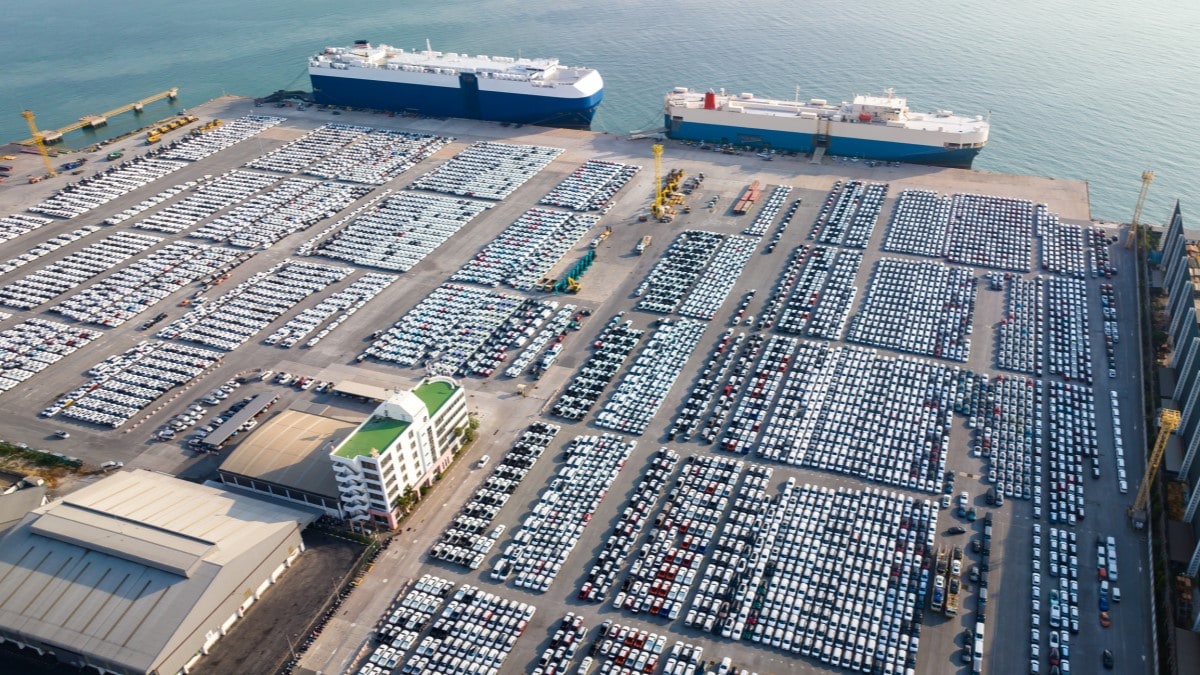Early Tuesday morning, a cargo ship hit a support column on Baltimore’s Francis Scott Key Bridge, sending much of the span crashing into the harbor below. The 985-foot-long vessel appears to have lost power, disabling directional control. Ship personnel radioed a mayday signal, which gave police time to direct most drivers away from the bridge before the crash. Six workers, part of a construction crew filling potholes on the bridge’s surface, are missing and presumed dead. Two workers were rescued, and there were no reported injuries to the cargo ship’s crew.
The tragedy will snarl traffic on land and water. The New York Times reports that rebuilding the 1.6-mile-long span will “probably be a multiyear effort.”
It will also slow commerce and pose particular challenges for the auto industry. But it’s not likely to mean a shortage of new cars. Most automakers affected by the incident already have a larger-than-normal supply of new vehicles on dealer lots.
Port Closure Affects Many Vehicle and Parts Shipments
Authorities will need to clear debris from the harbor. Axios notes, “The Port of Baltimore, one of the busiest in the U.S., has halted vessel traffic indefinitely in the wake of the bridge’s collapse — which is expected to affect the flow of commerce in the U.S.” Maryland Secretary of Transportation Paul Wiedefeld told reporters the state has no projection for when traffic will reopen.
Some ships carrying imported cars are unable to enter the harbor today. In a statement, Maryland Governor Wes Moore noted that the port has processed “more cars and light trucks than any other U.S. port for 13 consecutive years.”
Industry publication Automotive News notes, “The port handles imports, exports and parts shipments for major automakers such as Nissan, Toyota, General Motors, Ford, Mazda, Subaru, Volvo, Jaguar Land Rover, and the Volkswagen Group — including luxury models for Audi, Lamborghini, and Bentley.”
Shipment Slowdown Expected
In a statement, the auto industry trade group Alliance for Automotive Innovation said, “It’s too early to say what impact this incident will have on the auto business, but there will certainly be a disruption.”
Ford says it has diverted parts shipments to other ports, which could impact its supply chain. General Motors is similarly working to route shipments to other cities. Mercedes-Benz and BMW both said they are working to change supply chains to adjust for the port’s closure.
Volkswagen, meanwhile, “said its port operations in Baltimore were unaffected by the bridge collapse due to the location of its facilities.”
But Most Dealers Already Well-Stocked
The disaster may delay shipments of some new cars. But it’s unlikely to have effects car shoppers can feel.
It comes at a time when most automakers are well-stocked, and some are oversupplied in the U.S. Many have more cars in stock than traditional industry practices suggest. That has dealers offering discounts to help sell down the stockpile.
Land Rover buyers might see a slight disruption.
In a message to dealers leaked on the social media site X, JLR (the company formerly known as Jaguar Land Rover) said it had about 800 vehicles unable to offload in Baltimore.
Land Rover dealers ended February with a 47-day supply of new cars in stock – a slight shortage by traditional industry standards.








